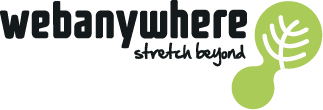AI Ethics for Workplace Learning

As artificial intelligence (AI) continues to reshape corporate learning, it brings immense potential for innovation—but not without ethical concerns. Sean Gilligan, founder of Webanywhere, recently joined the Corporate Learning Summit Podcast to explore these challenges and share actionable advice for businesses navigating this new frontier.
The Double-Edged Sword of AI in Learning
“AI has the power to transform workplace training,” says Gilligan. “But it also comes with risks like bias and privacy issues. If we’re not careful, we could end up widening skill gaps instead of closing them.”
Bias in AI systems often stems from the historical data they’re trained on. In corporate learning, this can result in inequities, such as unfairly recommending advanced training to certain groups while excluding others. Gilligan emphasizes the importance of transparency to combat this: “Companies need to work with vendors who can explain their algorithms and provide visibility into how their systems operate.”
Personalization vs. Surveillance
AI’s ability to personalize learning paths is one of its greatest strengths. By analyzing employee performance data, AI can recommend tailored training programs that address individual skills gaps. However, this level of personalization raises concerns about employee surveillance.
“Transparency is critical,” says Gilligan. “Employees need to know what data is being collected, how it’s being used, and how it benefits them. When people understand that the goal is to support their growth, they’re more likely to embrace these systems.”
The Role of Trainers in an AI-Driven World
One of the biggest fears surrounding AI is that it could replace human trainers. Gilligan argues that this is unlikely. Instead, trainers will take on more strategic roles as AI handles repetitive tasks like scheduling and grading.
“AI is great at automating the routine stuff,” says Gilligan. “But it can’t replicate the human elements of learning—like building trust, mentoring, and fostering collaboration. Trainers will become coaches and facilitators, focusing on higher-value activities.”
Building Trust in AI Tools
For AI to be effective in corporate learning, employees must trust the tools they’re using. Gilligan suggests proactive communication as the key to building this trust. “Organizations need to be upfront about how AI is being used and involve employees in the process. Trust starts with transparency.”
He also warns that once trust is broken, it’s incredibly difficult to rebuild. “That’s why companies should prioritize ethical AI practices from the start and address potential issues before they arise.”
The Future of Ethical AI in Corporate Learning
Looking ahead, Gilligan envisions a future where AI enables lifelong, personalized learning. “Imagine a system that follows an employee throughout their career, constantly adapting to their evolving goals and skills,” he says. “It’s a powerful vision, but we need to address cultural and regulatory hurdles to get there.”
Practical Steps for Ethical AI in Learning
Gilligan offers clear advice for organizations looking to embrace AI while staying ethical:
1. Start Small: “Choose AI tools that align with your goals and values. You don’t have to overhaul everything at once.”
2. Prioritize Transparency: “Work with vendors who are open about their algorithms and data practices.”
3. Involve Employees: “Engage your workforce in the process and address their concerns.”
4. Audit Regularly: “Monitor your AI systems to identify and mitigate any unintended biases.”
Final Thoughts
AI has the potential to revolutionize corporate learning, but its success hinges on ethical implementation. As Gilligan puts it, “The goal is to create a partnership between humans and AI, where each plays to their strengths.”
